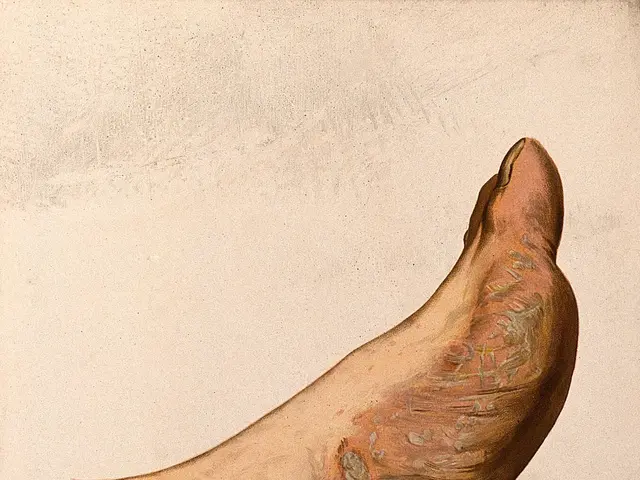Potato Research Extravaganza: Unraveling the Secrets of Tuber Genetics in Groß Lußewitz
Open Day Event: Exploration into Potato Studies at Groß Lüsewitz - Potato exploration open day in Groß Lüsewitz: Learn about potato studies and findings
Get ready to delve into the fascinating world of potato research and breeding! Today's the day as scientists and experts share insights at the "Open Day" event on the bustling research campus in Groß Lußewitz. This special occasion celebrates the 120th anniversary of agricultural scientist and breeder Rudolf Schick, who made significant contributions to the University of Rostock and served as its rector.
You'll find a wealth of knowledge from the Julius Kühn-Institut's Institute for Crop Plant Research based in Groß Lußewitz, the potato gene bank of the IPK, Leibniz Institute for Plant Genetics and Crop Plant Research, Norika Potato Breeding GmbH, and NPZ Innovation GmbH—all eager to enlighten visitors. The theme of the event: "Innovation rides on Tradition."
One formidable foe of the humble potato has ever been late blight ("Phytophthora infestans"), a challenge that researchers in Groß Lußewitz have tackled tirelessly. A potato must boast up to 60 distinctive characteristics, from taste and skin thickness to tuber shape, size, starch content, and exceptional yield quality.
Did you know that Germany is the potato champion of the European Union, yielding around 12.7 million tonnes annually? Nearly half of that bounty hails from Lower Saxony. Last year, farmers in Mecklenburg-Vorpommern harvested 575,000 tonnes of spuds, an encouraging 8% increase compared to the previous year.
Potato Powerhouses
In the global arena, scientists are united in unlocking the potato's genetic potential through cutting-edge genomics and breeding programs. For example, the James Hutton Institute focuses on developing new varieties boasting desirable agronomic traits, such as late blight resistance.
The science of genome editing brings hope for breeding more resilient potatoes, like the Agroscope's drought-tolerant and disease-resistant potato lines, crafted with transgene-free genome editing. Such innovations could aid in enhancing disease resistance.
International collaboration is crucial in advancing potato research, with events like Potato Europe 2025 in the Netherlands bringing together industry leaders to demonstrate the latest breakthroughs and share knowledge.
Battling Blight
Late blight continues to be a primary concern in potato production, with breeding programs striving to improve resistance by incorporating genes offering immunity or tolerance to the menace. Although those details aren't explicitly mentioned in the research results, remember that they provide a valuable peek into the future of potato research and production.
For more detailed information on today's "Innovation needs Tradition" Potato Research Open Day at Research Campus Groß Lußewitz, consider delving into local or specialized agricultural research publications for a comprehensive understanding. Get ready to explore the magnificent world of potatoes!
Community aid may be provided to support vocational training programs for farmers in health-and-wellness initiatives, such as learning modern farming techniques or understanding medical-conditions related to working with potatoes. The science of genome editing in vocational training could play a significant role in equipping farmers with the ability to breed more resilient potatoes, capable of withstanding diseases like late blight.




